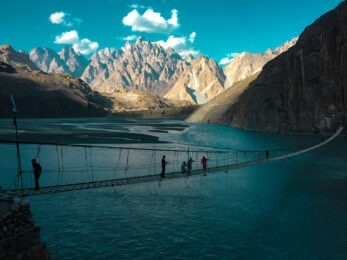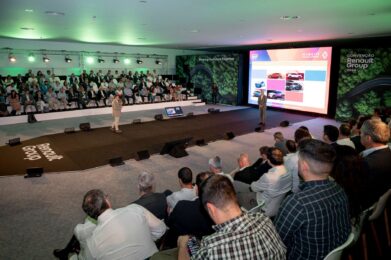WEFTEC Earns EIC’s Platinum-level Sustainable Event Standards Certification
In October 2024, over 20,000 professionals in the global water sector gathered in New Orleans’ Ernest N. Morial Convention Center for the Water Environment Federation’s (WEF) annual Technical Exhibition and Conference (WEFTEC). A few months later, in January, the Events Industry Council (EIC) announced that the event had achieved Platinum-level certification of its Sustainable Event Standards—the highest level possible—a particularly momentous feat due to WEFTEC’s achievement of Gold-level certification for it’s event just one year prior.
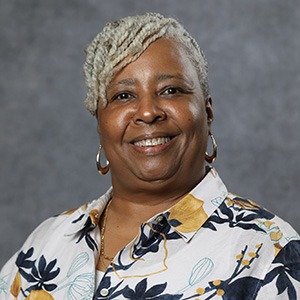
Smart Meetings followed up with Stephanie Jones, CAE, CMP Fellow, SEPC, the managing director of event strategy at WEF. Jones offered a wealth of insights about how her team reached this distinguished achievement, and advice for planners who want to do the same.
“Achieving the highest level of certification to the Events Industry Council’s Sustainable Event Standards is a testament to our dedication to sustainability and commitment to advancing practices that benefit the communities we serve,” Jones shared in a press release.
Read More: Sustainability as a Practice
The Sustainable Event Standards
EIC’s Sustainable Event Standards is a set of eight specific standards with key performance criteria. It is designed to provide organizations and event professionals with a framework to implement and measure sustainable practices—propelling the entire industry to aspire towards a greener and more socially responsible version of itself.
Jones speaks to how the Standards provide transparent guidance for event planners and organizations working towards this goal. “EIC’s Sustainable Event Standards have provided us with a clear path to elevate our efforts and set a new benchmark for sustainable events in our industry,” she says.
Applicants who seek certification are assessed on their achievement in each area—organizational management; marketing, communications and engagement; climate action; water management; materials and circularity; supply chain management; DEI; accessibility; and social impact. They are awarded a certain number of points for their achievement in each specific sector, as well as an overall completion percentage, which determines the level of achievement: Bronze (50%), Silver (65%), Gold (80%) or Platinum (90%). EIC also offers a Foundations level certificate, which emphasizes education, tools and resources to support widespread adoption of sustainable practices across the industry.
Planning for Progress
“WEFTEC’s achievement exemplifies what is possible when event organizers commit to integrating sustainability into every facet of their operations,” remarked EIC CEO Amy Calvert. “This certification not only reflects WEF’s leadership but also demonstrates their dedication to setting a high standard for environmental and social responsibility in the events industry.”
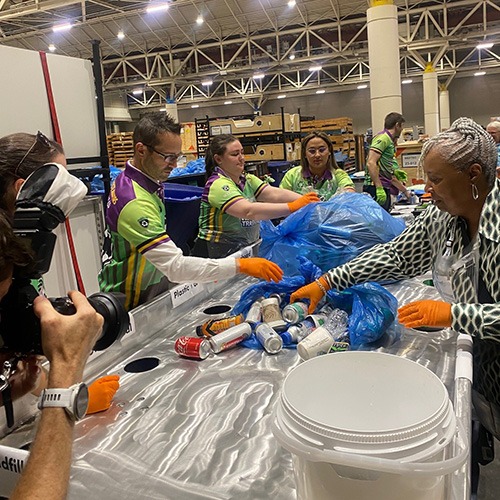
As the team planned the 2023 event, Jones says, they relied heavily on the Sustainable Event Standards to see exactly what they need to implement and what they needed from their supplier partners, demonstrating to the wider industry how the standards can serve as a guideline. Once the team knew what they needed to do, they created a detailed roadmap to achieve the goals they set out, with specific steps and timelines to hold themselves accountable.
When it came time to plan the 2024 event, the team knew they had what it took to achieve Gold, and felt confident that they could go even further. One of the first steps they took when beginning the planning process for the 2024 event, Jones says, was adding sustainability requirements to their RFPs, ensuring sustainability was considered thoroughly from the start.
As the event drew closer, they continued to build on their efforts. They launched new environmental initiatives and brought in carefully selected partners that would help them achieve their goal. Jones says, “Environmental impacts include transportation, venue selection, food waste, sustainable sourcing, energy use, water conversation, and waste management. Consideration of how to minimize these impacts must be considered during the planning process.”
WEFTEC collaborated closely with the convention center to implement a waste audit to sort trash, for example, ensuring everything ended up in the correct waste stream. This often overlooked detail made a major impact on making the event more sustainable, not only environmentally, but socially, as it ensured the event did not harm the host community by leaving it with excess, unsorted waste.
“By making intentional choices in these areas, event professionals can drastically reduce their environmental footprint while creating meaningful and responsible experiences,” Jones explains.
Read More: Sustainable Event Planning: Action Steps to Lasting Strategy
Change is in the Details
“Sustainability in event planning requires a holistic approach,” Jones says. “It is not only about environmental stewardship but also about social impact. As event planners, we must address the impact we make on local communities that host our events and find ways to give back.”
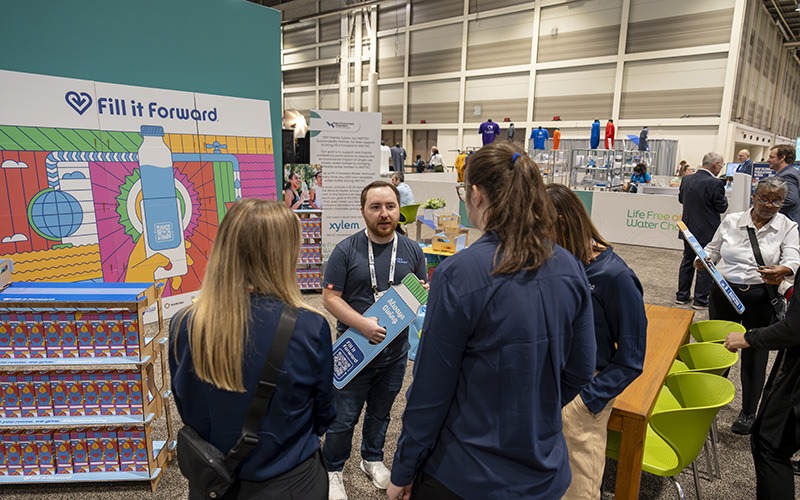
Aptly, the Water Environment Federation event held a key focus on reducing waste from plastic water bottles. All F&B events and concessions eliminated plastic water bottles. WEF instead encouraged all attendees to bring reusable water bottles and, through a partnership with Fill it Forward, were able to distribute stickers with QR codes that attendees could place on their reusable bottles and scan each time they re-filled. At the end of the event, the convention center saw a record 27,000 refills. WEF also received recognition from Fill It Forward as one of their 2024 Changemakers.
WEFTEC offset 100% of its water usage at the convention center by using water restoration credits to fill in any gaps. Plus, WEF made a $5K donation to a Fill It Forward giving project; their donation went to improving access to clean water and sanitation facilities and promoting hygiene practices at schools in the Dominican Republic.
Through a partnership with Xylem, a WEFTEC sponsor, the event organizers were able to elevate their social impact initiatives, which earned notable points towards their Sustainable Event Standards certification.
Big Takeaways
Their greatest challenges, Jones says, was in asking venues and suppliers to pivot in order to meet the Sustainable Event Standards’ specific criteria, and then, collecting all the data and documentation the Sustainable Event Standards’ third-party audit requires in order to review the event and assess its level of achievement.
After the conclusion of the event, Jones says, WEFTEC requested a post-event sustainability report from the venue—which showed that record-making number of 27,000 water bottle refills, for one. “Starting the conversation early and giving everyone time to adapt or make the change is key,” Jones says. As she explained earlier, the team’s very first step was in the RFPs.
Although challenging, working with venues and suppliers is a crucial component of achieving sustainability goals. “Achieving certification requires partnership and collaboration and everyone has to be on board,” Jones says. Along these same lines, Jones expresses the importance of getting your leadership on board. Certification requires buy-in.
Read More: Going Beyond Green
How You Can Do It Too!
For planners who are just getting started on their sustainability journeys, Jones says, “Once your leadership is on board, take the EIC Sustainable Event Professional Certificate Programme and get access to the Standards. Assess where you are and determine what level of certification you can reasonably achieve. This is a journey, and planners can use the standards to take a phased approach to sustainability, even if they aren’t ready to certify.”
Read More: The SEPC: Learn to be a Green Planner
The journey is part of the process, and simply by choosing to embark on it, planners demonstrate commitment to building a more sustainable world. WEF’s achievement of Gold level certification in 2023, and later, achievement up to the next level in 2024, reflects the planner’s journey of creating ever-more sustainable events, and how positive impact exists in every step along the way.
EIC’s Sustainable Event Standards exist just for this purpose. The keywords on the Sustainable Event Standards webpage put it this way: The standards exist so that “event professionals at any stage in their sustainability journey have the support needed to implement and measure sustainable practices.” It’s a set of guidelines with achievable outcomes that all events can aspire to.
For those who want to learn more about sustainable events and propel themselves on their journey forward, Jones shares one final shoutout: The EIC Centre for Sustainability and Social Impact’s recently-released resource titled “The Good, Better & Best Steps to Sustainable Events.” Created in collaboration with In-House Corporate Event planner community (ICE), this resource is another one of the many that exist to support you on your sustainability journey—step by step!


